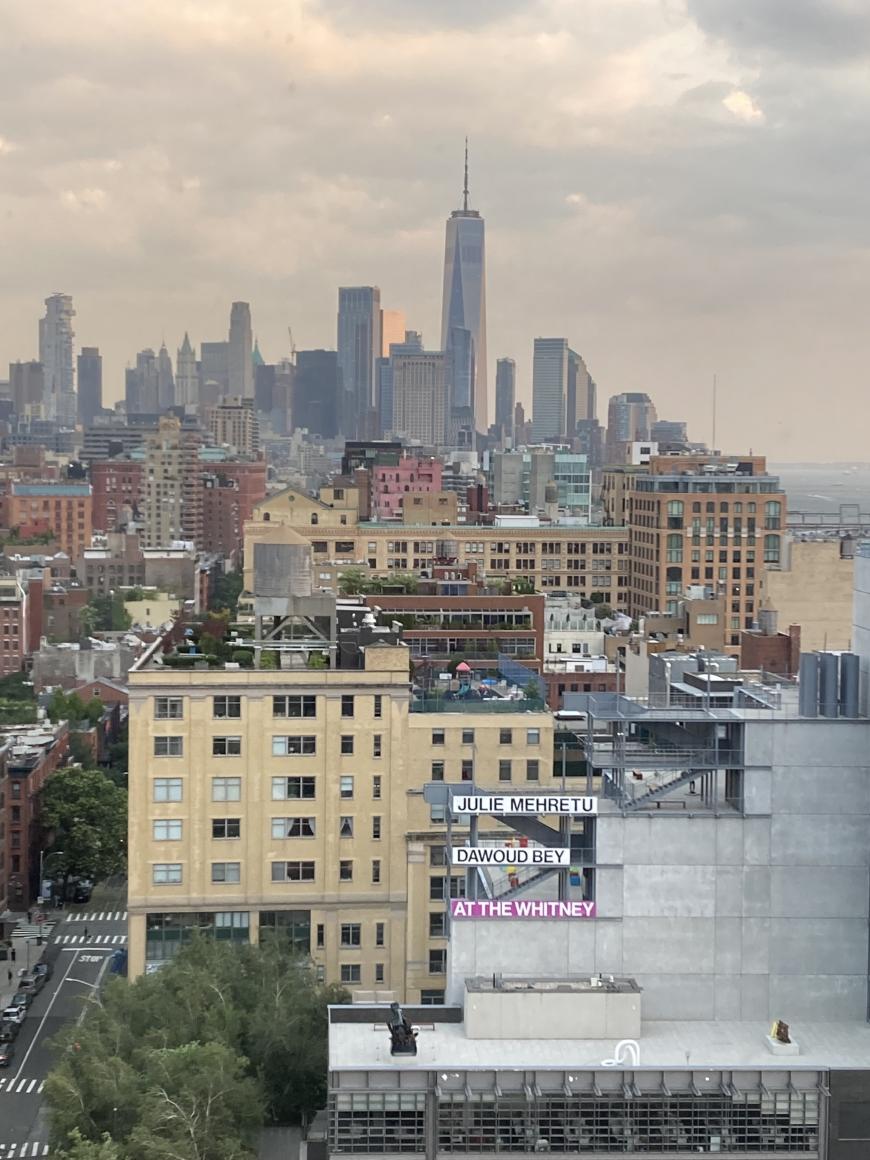The defenders of Western hegemony sense the encroachment and have already defined the possibility of imagining race without dominance—without hierarchy—as “barbarism.” We are already being asked to understand such a world as the destruction of the four-gated city, as the end of history. We are already being asked to know such a world as aftermath—as rubbish, as an already damaged experience, as a valueless future.
~Toni Morrison
Urban Justice Lab: Seeing to Be in the Aftermath (ARCH 6408, SHUM 6819)
Mondays 2:40–4:35 p.m.
Course Instructor: Lyrae Van Clief-Stefanon, Associate Professor of Literatures in English
This Urban Justice Lab introduces Phase III of Cornell's Mellon Collaborative Studies in Architecture, Urbanism, and the Humanities.
Course Description:
In 1964, in the aftermath of a riot, June Jordan wrote to Buckminster Fuller, proposing a collaborative architectural redesign of Harlem as a way, she wrote, “to save me from the hatred I felt.” In this seminar—grounding our study in works such as June Jordan’s New Days: Poems of Exile and Return, Gwendolyn Brooks’ In the Mecca and In Montgomery, Nikki Finney’s Rice, and Sonia Sanchez’s Does Your House Have Lions—let’s think through the ways poets figure a correspondence between dreamscape and realscape, envisioning and interpreting the spaces we’re meant to inhabit. How do we read cities, houses, communities? Where and how do we learn these reading practices? How do these poems help us develop theories of place? How are emotional connections to place limned and how do poets help us see to be habitable worlds? In “The Second Sermon on the Warpland” Brooks insists we “know the whirlwind is our commonwealth.” Visualizing the vector fields suggested in these poems, what methods might we find for living, nevertheless? How do we move within and between conceptual experiments we walk through every day? How do experiments like the Tattoo Project in Detroit, MI, Lexington, KY and Boulder, CO speak to the ways community identity construction is entangled with poetic measure? Let’s think through the math and the aftermath. Our approach will be experimental, interdisciplinary, and emergent. Bring what you’re working on and let’s see how our projects intersect. Other texts may include Jen Brody’s Punctuation: Art, Politics, and Play and the Orion Magazine anthology Old Growth.
The course will include introduction to digital tools as well as integration of student research with collections available at the Rare and Distinctive Collections in Cornell Library and the Herbert F. Johnson Museum. Students will have the resources to develop innovative methodologies (curated collections, digital tools, video essays, etc.), and will be able to work on material or a location connected to their own interests as they investigate and imagine urban possibilities.
